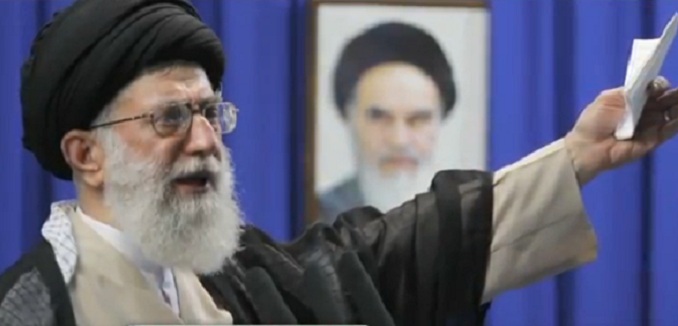Deputy national security adviser Ben Rhodes said Thursday that Washington would not offer sanctions relief to Iran in the absence of “concrete steps” to address international concerns over its nuclear program, which roughly half a dozen United Nations Security Council resolutions have called for dismantling.
“We are not contemplating anything that removes those sanctions at the front end of any negotiation or agreement, because it’s going to be important to test Iranian intentions…We continue to want to have that flexibility to pursue this diplomatic track. There’s an opening that we want to test,” Rhodes said.
U.S. lawmakers have emphasized that meeting those obligations would require Iran to among other things halt its uranium enrichment program, cease plutonium-related work at its Arak facility, export its existing stockpile of enriched material, and open up its suspected nuclear weaponization facilities for inspection. A report released this week by the Institute for Science and International Security (ISIS) described multiple scenarios under which a partial deal – one that left Iran with its existing nuclear stockpile and with enrichment capabilities – would allow the Islamic republic to follow the North Korean playbook and sneak across the nuclear finish line without Western detection. The Hill today noted that Congressional Democrats are growing increasing worried regarding reports that the administration may accept a deal that falls short of those conditions.
The White House request leaves Senate Majority Leader Harry Reid (D-Nev.) and the chairmen of the Foreign Relations and Banking committees, Robert Menendez (D-N.J.) and Tim Johnson (D-S.D.), with a tough choice. The White House wants more time to negotiate with Iran over its nuclear program, but Senate Democrats are under pressure to quickly adopt new sanctions that are expected to target Iran’s oil sector and foreign currency reserves.
The Washington Post today documented similar concerns being raised by the U.S.’s Arab and Israeli allies.
[Photo: CNN / YouTube]




